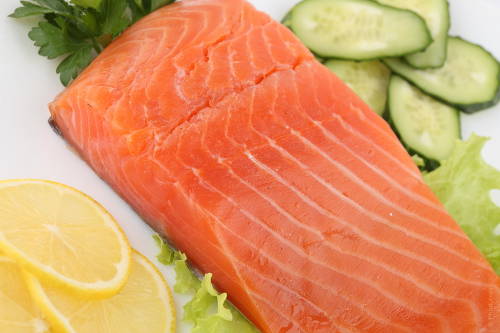Proteins are essential substances in the human body. We suffer from vitamin and mineral deficiency almost every spring, and are sure, the blues and fatigue are the consequence of avitaminosis. However, we hardly guess that many health problems can be caused by protein deficiency.

Why Are Proteins Important?
Protein is the basis for body construction. Proteins comprise muscles, tissue, internal organs, blood cells, immune bodies, hair, nails and skin cells.
Food proteins are taken to pieces as amino acids in the intestine. Amino acids get into the liver to produce their own body proteins. Some amino acids can be produced by the body, and some of them only have to come from outside. These are essential acids, but they are contained only in animal proteins. Vegetable proteins have a poorer set of amino acids, so they are not considered full-fledged.
Other important protein functions are the enzymatic and metabolic ones.
Moreover, proteins transfer important substances – ions, nutrients and others – to and from the cells. Proteins protect our bodies from infections because immune bodies and mucous protective proteins are all protein molecules.
Proteins keep us young and beautiful – and it is thanks to the timely renewal of the collagen and elastin molecules that prevent dehydration, skin aging and wrinkles.
How to Detect Protein Deficiency?
If you have flabby muscles, saggy skin or wrinkles on your face before you are thirty – you are sure to have problems with protein metabolism. If you do regular exercise, and do not consume any proteins because you are fasting or keeping a low-protein diet – you also have problems with protein metabolism. You should reconsider your diet if your weight is more than 25% above normal, and if there is obesity – so much the more. If you suffer from protein deficiency, your metabolism slows down, and it decreases the enzymes and hormones’ activity, which eventually leads to the muscle mass loss and getting fat.
Take a close look at your skin, nails and hair. What condition are they in? They have an almost entirely protein origin, and are seriously affected in case of protein deficiency. If you have chronic protein deficiency, your skin gets flabby and pale, defects appear, the hair gets brittle, nails exfoliate and grow back worse.
Immunity problems mean frequent colds, allergies, dermatitis and pustular rash. In general, they are also associated with protein deficiency – there is just nothing to build the immune cells and antibodies from. Indigestion, constipation, malaise, fatigue, and low resistance to stress may also happen.
Protein Deficiency Treatment
1. Reconsider your diet critically
You may feel that you eat a lot of meat, but in fact, these foods contain very little quality food protein (and sometimes they do not contain it at all). The following foods are relatively regarded as meat products: cooked or smoked sausages, convenience foods with “meat”, store rissoles, smoked ham, shank, rolls, etc.
To vary your meals, you can eat these foods from time to time, but do not use them often – especially as a source of protein! There is just not enough of it in these products.
2. Choose lean meats and low-fat fish
Fat slows down protein absorption. The fattest foods are salmon, catfish, goose and duck, cod liver, pork and beef brisket. The best sources of protein are skinless chicken, beef, rabbit, turkey, and eggs. However, it would be good to diversify your diet with vegetable proteins in the form of legumes, nuts and buckwheat.
Considering this, the most useful ways of cooking meat are foil roasting, steaming, and stewing.
3. Eat protein separately
Protein foods should be eaten separately from potatoes, cereals and bread, otherwise they are poorly absorbed. It is better to combine meat and vegetables – fresh or stewed – they help digest protein. Eat protein foods before 6 pm, as its digestion at night gets rather difficult.
At the same time, you should not overload your body with protein, because its excess leads to intestine putrefaction, metabolism products intoxication, constipation and a heavy stomach.










